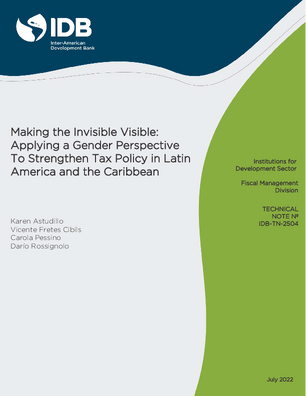Making the Invisible Visible: Applying a Gender Perspective To Strengthen Tax Policy in Latin America and the Caribbean
Date
Jul 2022
Latin American and Caribbean countries have made efforts to ensure that fiscal policies do not cause biases toward women. However, depending on where the tax burden falls, taxes do create gender biases. This technical note has two purposes. First, it provides evidence of how womens economic participation, care responsibilities, and consumption patterns enter into a countrys tax systems, generating invisible biases. Second, it summarizes the main lessons learned through cross-country comparisons that analyze the impact of direct and indirect taxes on gender equality, the progressivity of the tax systems using both income and expenditure as welfare measures, and the impact of tax systems and tax reforms on households depending on their composition and across the income distribution. The note also provides policy recommendations and good practices that will add to the regions efforts to strengthen fiscal policy taking a gender perspective into account. There is no unique approach to achieving gender equity only through gender-sensitive fiscal policies; rather, the path to change will likely be highly dependent on the balance struck between differing political and economic factors and interests. However, should Latin American and the Caribbean countries take on this challenge, not only could they generate more revenue in the future, but the changes should contribute to sustained and inclusive growth, with greater gender equality.




